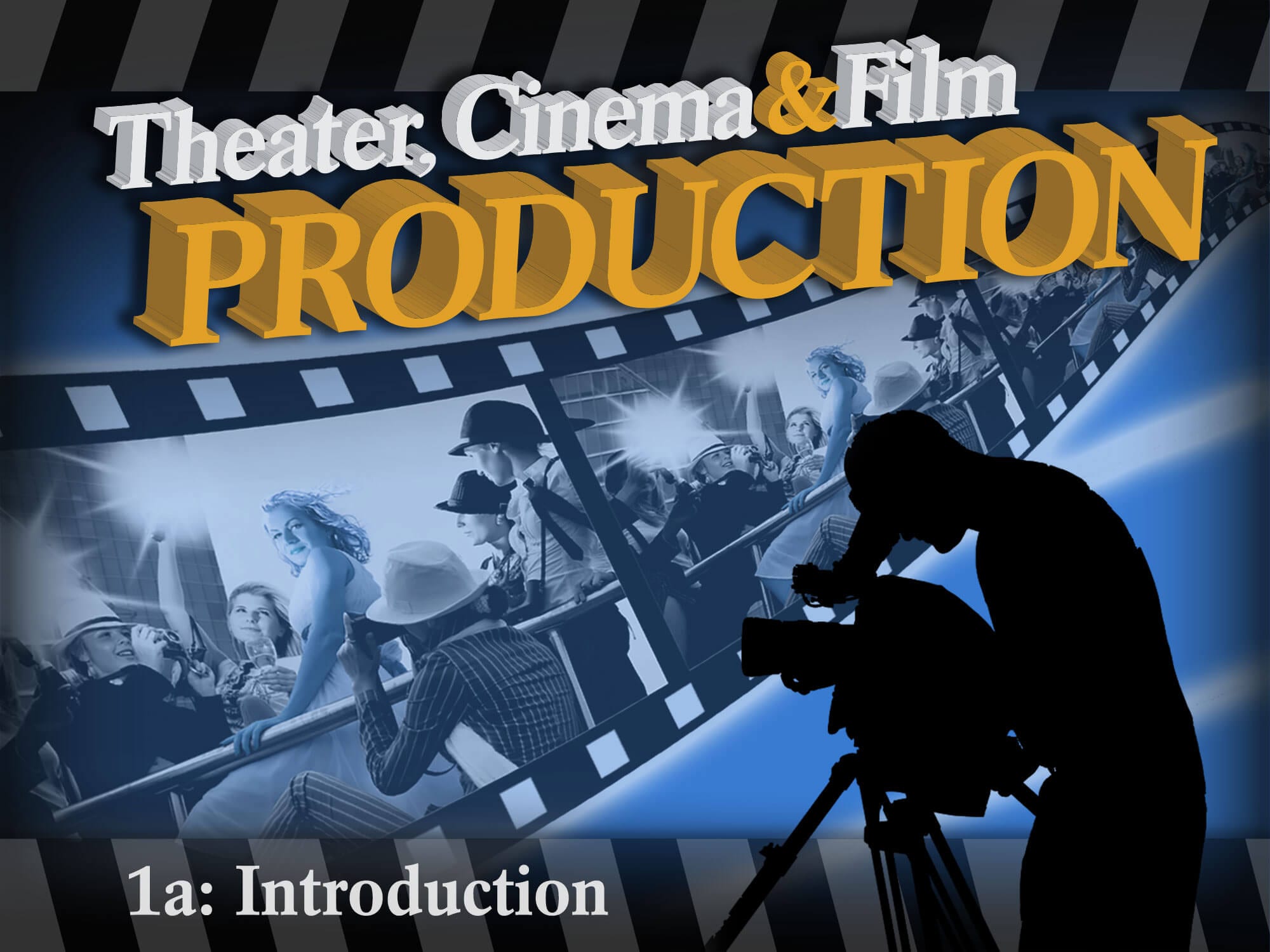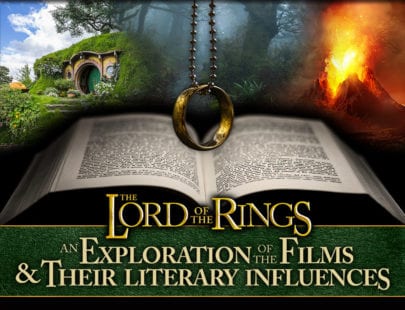
Theater, Cinema, and Film Production 1a: Introduction
Lights! Camera! Action! Theater and cinema are both forms of art that tell a story. Let’s explore the enchanting world of live theater and its fascinating relationship to the silver screen. Explore the different genres of both and how to develop the script for stage and film. Then dive into how to bring the script to life with acting and directing. If you have a passion for the art of film and stage, let’s bring your creativity to life!
Units at a Glance
Unit 1: The World of Theater
Theater is one of the very first forms of entertainment—acting out ideas to amuse or inform others may even predate organized human language. This is an art form that has evolved over time, but it has never really lost track of its roots. To properly evaluate theater, it’s important to understand those roots. Why do we perform plays? What purpose do they serve? And why are plays still so relevant today? We’re about to dig into these questions so you’ll be better able to appreciate and evaluate theater.
What will you learn in this unit?
- Describe the elements of theater
- Explain the global history of theater and stage plays
- Identify different historical purposes for plays
- Discuss elements of theater theory and criticism
Unit 2: The World of Film
At its heart, film is another way to tell a story. It’s a visual medium, one that has the benefit of time to manipulate lights, cameras, performances, angles, technology, color, and sound to create the atmosphere that best suits its story. Innovations in hardware, computer effects, distribution, and technique have influenced changes in filmmaking over the years, but its primary goal has never changed: it’s here to tell us a story and entertain us.
What will you learn in this unit?
- Outline the major technological events that shaped the history of film
- Detail the rise of cinema around the world
- Articulate the different purposes filmmakers consider when making movies
- Discuss elements of film theory and criticism
Unit 3: Theater Genres
Theater has evolved a great deal since its Greek beginnings. The earliest works included only comedy and tragedy. Over time, those two genres had to expand and change to accommodate the many different styles of writers and types of audiences drawn to onstage performances. Specific genres emerged to help label plays for audiences who were unfamiliar with the content. It’s easier to choose a play if you have some idea what kind of performance it will be.
What will you learn in this unit?
- Detail the history of genres in theater
- Define drama and explain the difference between drama and tragedy
- Outline the history, elements, and types of comedy
- Describe musical theater and discuss its different elements
- Discuss the history and purpose of experimental theater
Unit 4: Film Genres
Theater is not the only form of performance that relies on genres to help define and categorize its output. But thanks to theater, by the time movies were developed, audiences were already accustomed to the idea of labels that helped them decide whether or not they were interested in watching. Filmmakers quickly began to mix and mingle these genres, creating surprising and entertaining work in the process.
What will you learn in this unit?
- Describe the concept of drama in film
- Identify the elements of comedy
- Detail the different categories within the genre of adventure film
- Articulate the otherworldly nature of fantasy film
Unit 5: Plotting the Script
What goes into a script, whether for a stage play or a film? It’s a process that has evolved over time, but it usually takes on a specific architecture. Writers think about how best to convey the story through visual ideas, showing rather than telling audiences what is happening. The structure of the story gives writers a solid framework that appeals to audiences and lets writers be more inventive in other aspects of the story.
What will you learn in this unit?
- Define the basic elements of stage or script writing
- Identify some details required in creating a script
- Detail the most common structure for play scripts
- Articulate the components of a three-act script
Unit 6: Acting
Acting, when done well, offers more than just entertainment. It transforms a written play or script into a living, breathing work of art that can become a powerful story for many, many people. How do actors develop the skills to create believable, memorable characters? And what are the steps an actor goes through to be cast in a film or play?
What will you learn in this unit?
- Identify changes in performance style and opportunities throughout history
- Explain the elements of several approaches to acting
- Describe the differences between acting on stage and on screen
- Summarize the steps in the acting process from auditioning to performing
Unit 7: Directing
What does it mean to direct for stage or screen? What does a director do? What are their responsibilities, and how do they work with actors and the rest of the crew? The director works much like an orchestra conductor, coordinating everyone’s contribution to the art being created. It’s an important position to understand, so whether you’re an actor, the director of photography, a spectator, a critic, or the director, these are important questions to answer.
What will you learn in this unit?
- Outline the history and evolution of stage and film directing
- Describe the specific tasks and talents required of a stage director
- Detail the specific tasks and talents required of a screen director
- Identify issues regarding representation in stage and film direction
Unit 8: Love of Stage and Screen
Dramatic performances, uproarious comedies, thrilling adventures, and delightful musicals entertain theater patrons and moviegoers every day—they help us pass the time, maybe move us to tears, and perhaps lighten our hearts. But there are those who have dedicated their professional lives to pinpointing the best each industry has to offer, celebrating that, and even restoring and preserving it so it can be enjoyed by audiences for years to come.
What will you learn in this unit?
- Identify the process, purpose, and outcome of major film industry awards
- Describe the process, purpose, and outcome of major theater industry awards
- Discuss the goals, merit, and process of theater and film criticism
- Detail the process and reasons for preserving and archiving film and theater
Required Materials
Physical
- Phone, tablet, or laptop with video capabilities
Software
- Word processing software
- Presentation software
- Blogger (requires login)
Other
- Access to a film or play
- Access to a live or recorded stage play
- Reflection document from Activity 1



